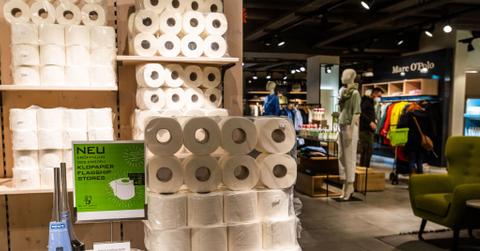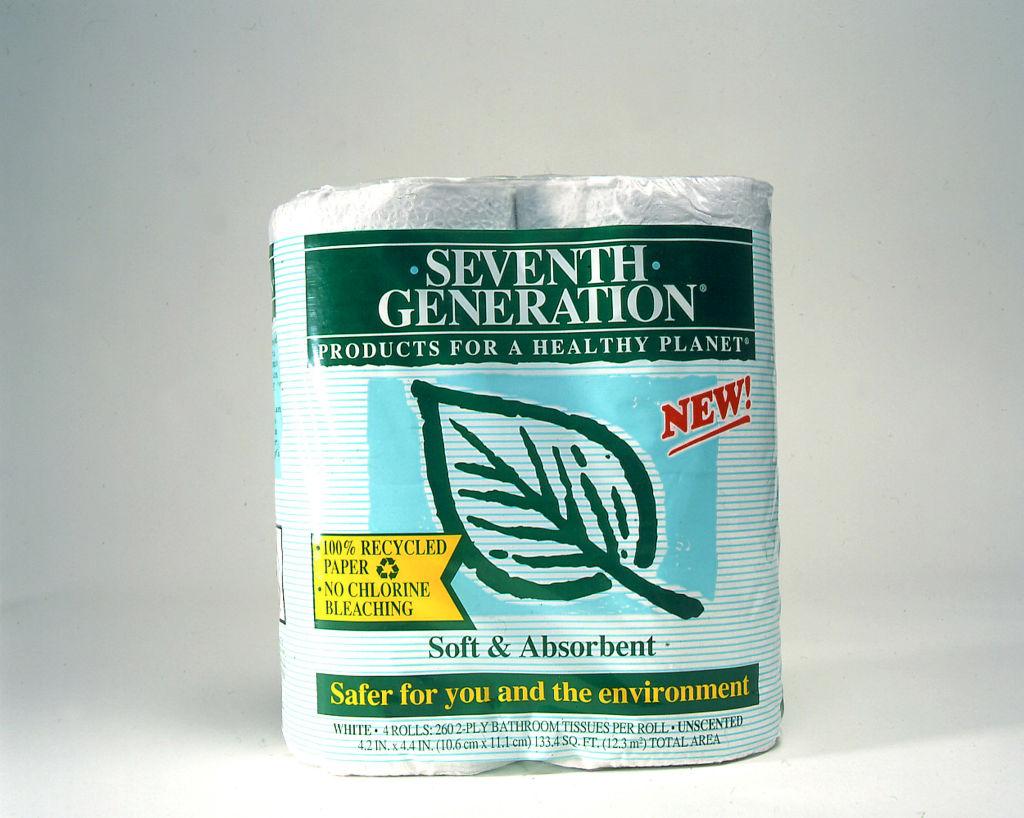Is Toilet Paper Biodegradable? How to See If Your TP Is Actually Eco-Friendly
Published Jan. 26 2024, 4:37 p.m. ET

As any recreational vehicle owner can attest, knowing for certain whether toilet paper is biodegradable and septic tank-safe is imperative, as not all toilet paper is made from the same eco-friendly and sustainable materials, per Camping World.
An item or material is biodegradable if it can be decomposed by natural processes, such as being broken down to base materials by bacteria. And as toilet paper brands compete with one another amongst a highly-crowded field, we seek to separate below the marketing from the real truth and answer whether all toilet paper is biodegradable.

Is toilet paper biodegradable? Here's how to test yours.
In almost all cases, yes, toilet paper is biodegradable.
Per Reel, a tree-free toilet paper company, nearly all toilet paper is biodegradable, as TP is generally always made with "natural pulp fibers." However, that doesn't mean all toilet paper is eco-friendly. The environmental impact of toilet paper isn't so black and white.
Consumers can perform a rudimentary test to determine if the toilet paper in their home is biodegradable. One way, as explained by Reel, is to put a square of toilet paper in a clear bottle with some water. Shake it up to see if the TP starts to break apart; and shake it again a few hours later — if the TP continues to break down, then it's biodegradable.
In general, all products made from paper or other plant materials are biodegradable, while non-biodegradable materials include glass, plastics, metal, polystyrene, per Organica Biotech.
Although it would appear that all toilet paper is biodegradable, that doesn't equate to all toilet paper being non-destructive to the environment.
Toilet paper may be biodegradable, but much of it is still harmful to the planet.
The production of toilet paper sourced from tree fibers necessitates trees being cut down in massive quantities, leading to devastating deforestation. The unfortunate truth is that most commercially-sold toilet paper is nevertheless bad for the environment.
The Natural Resources Defense Council (NRDC) has published an annual report since 2019, The Issue With Tissue, in order to "halt the tree-to-toilet pipeline” and rank various companies on how climate-friendly their products and practices are.

This report, in practice, separates the greenwashing from the real-life impact of how production processes affect the environment. The September 2023 TP scorecard from the NRDC shows that Whole Foods and Trader Joe's (A+) are two of the companies with top-scoring products in terms of sustainability, though it should be noted that they each feature products that also earned an F ranking.
Meanwhile, major companies like Walmart, Procter & Gamble, Kimberly-Clark, Amazon, and Georgia-Pacific produce toilet paper products that earned F grades and extremely poor rankings due to unsustainable production processes.
Therein lies the opportunity for toilet paper companies to fill the consumer demand for eco-friendly alternatives.
Bamboo and recycled paper are more sustainable options for toilet paper.
Common alternatives to commercial TP include bamboo and recycled toilet paper.
Bamboo is a fairly sustainable crop, as a bamboo plant can grow nearly 3 feet in one day, among other benefits, according to Grove Collaborative. However, it's not a perfect solution for every consumer, as it is often less accessible and more expensive than other brands.
Then there's recycled toilet paper, which doesn't involve the use of any new materials, reducing the strain on forests. However, recycled paper products may contain BPA, according to Green is the New Black.